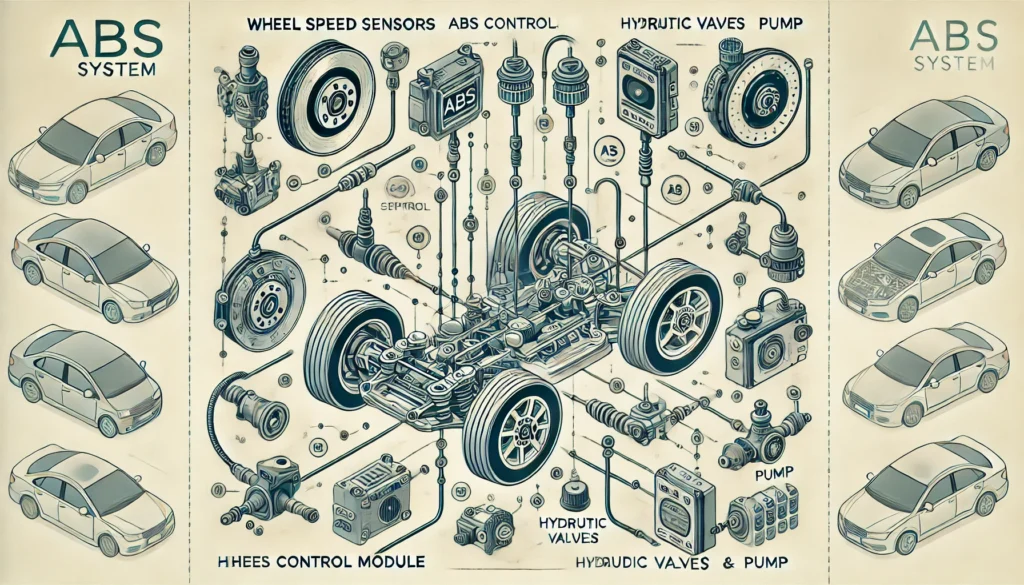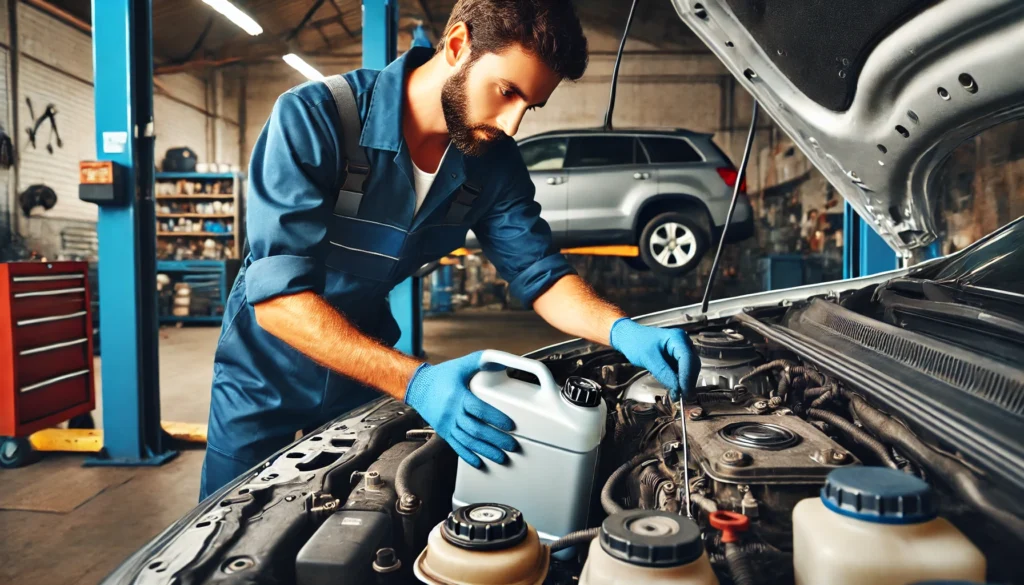The Anti-lock Braking System (ABS) is a crucial safety feature in modern vehicles, designed to prevent wheel lockup during braking and maintain steering control. Regular maintenance of the ABS system is essential to ensure its proper functioning and to prevent potential failures. This blog outlines the periodic maintenance tasks that should be performed to keep your ABS system in optimal condition.
Understanding the ABS System
The ABS system consists of several key components:
- Wheel Speed Sensors: Monitor the speed of each wheel.
- ABS Control Module: Processes data from the wheel speed sensors and controls the hydraulic valves.
- Hydraulic Valves: Regulate brake pressure to prevent wheel lockup.
- Pump: Restores pressure to the hydraulic brakes after the valves release it.

Periodic Maintenance Tasks
- Regular Inspection of Wheel Speed Sensors:
- Frequency: Every 6 months
- Steps: Check each wheel speed sensor for dirt, debris, or damage. Clean the sensors with a mild cleaner and a soft brush. Replace any sensors that are damaged or worn out.
- Importance: Clean and functional sensors ensure accurate wheel speed readings, which are crucial for the ABS system to operate correctly.
- Check and Maintain Brake Fluid Levels:
- Frequency: Every 3 months
- Steps: Inspect the brake fluid reservoir and ensure the fluid level is between the minimum and maximum marks. Top up with the recommended brake fluid if necessary. Replace brake fluid every 2 years.
- Importance: Proper brake fluid levels are essential for the hydraulic system to function effectively, including the ABS components.

- Inspect and Replace Worn Brake Pads and Rotors:
- Frequency: Every 12 months or 12,000 miles
- Steps: Remove the wheels and inspect the brake pads and rotors for wear. Replace brake pads that are worn down to the recommended thickness. Resurface or replace rotors that are damaged or warped.
- Importance: Worn brake pads and rotors can affect the overall braking performance, impacting the ABS system’s ability to control braking pressure effectively.
- Inspect the ABS Control Module:
- Frequency: Every 12 months
- Steps: Use an OBD-II scanner to check for any error codes related to the ABS control module. Inspect the module for signs of damage or corrosion. If the control module is faulty, consider professional repair or replacement.
- Importance: The ABS control module is the brain of the system. Ensuring it is functioning correctly is vital for the entire ABS system to work properly.
- Check and Clean Electrical Connections:
- Frequency: Every 6 months
- Steps: Inspect all electrical connections related to the ABS system, including those at the wheel speed sensors and the ABS control module. Clean any corroded connections and secure any loose wires.
- Importance: Good electrical connections are essential for the accurate transmission of data between the ABS components.

Additional Tips for ABS System Maintenance
- Regular Driving Tests:
- Steps: Periodically test your vehicle’s ABS system by performing controlled stops on a safe, empty road. Check for any unusual noises or sensations that may indicate a problem.
- Importance: Regular tests help ensure that the ABS system is functioning correctly and can highlight potential issues before they become serious.
- Professional Inspections:
- Steps: Schedule professional inspections of your ABS system during routine vehicle maintenance. Professional mechanics can identify and address issues that may not be apparent during regular checks.
- Importance: Professional inspections provide an additional layer of assurance that your ABS system is in good condition.
Conclusion
Regular maintenance of the ABS system is essential to prevent failures and ensure your vehicle’s braking system remains reliable and effective. By performing periodic inspections, maintaining proper brake fluid levels, and ensuring clean and secure electrical connections, you can help keep your ABS system in optimal condition. Regular professional inspections further ensure the system’s longevity and performance.